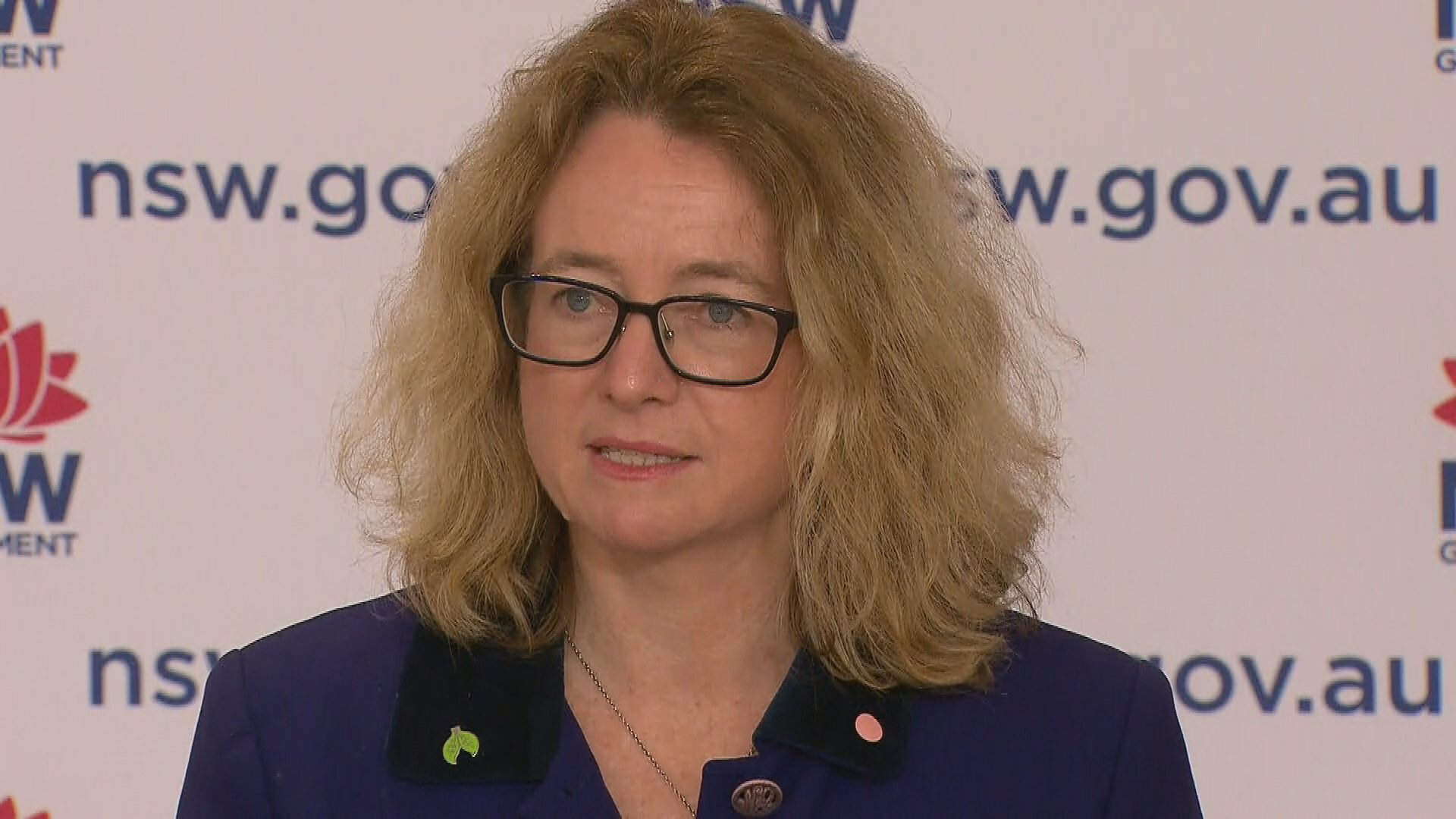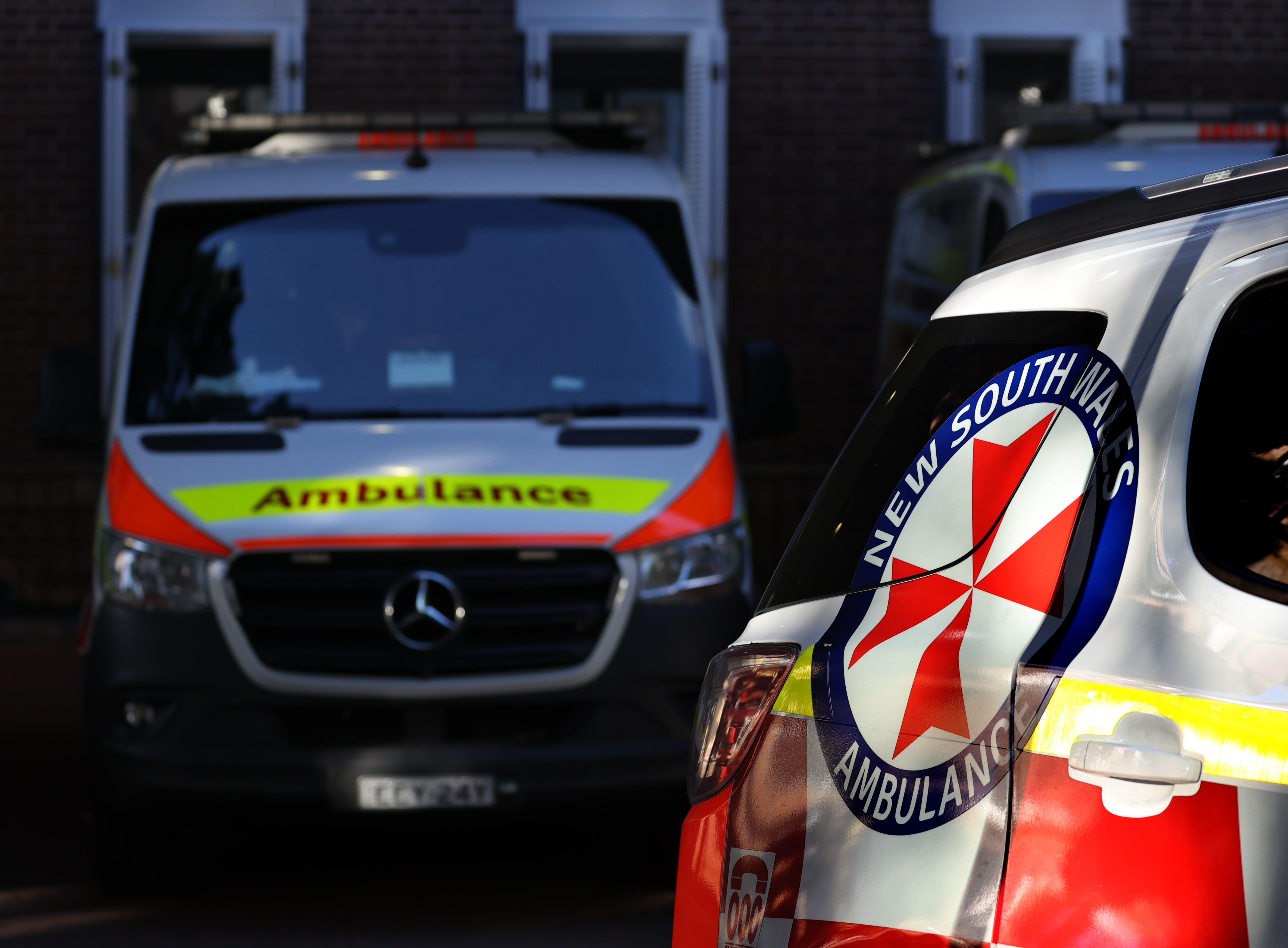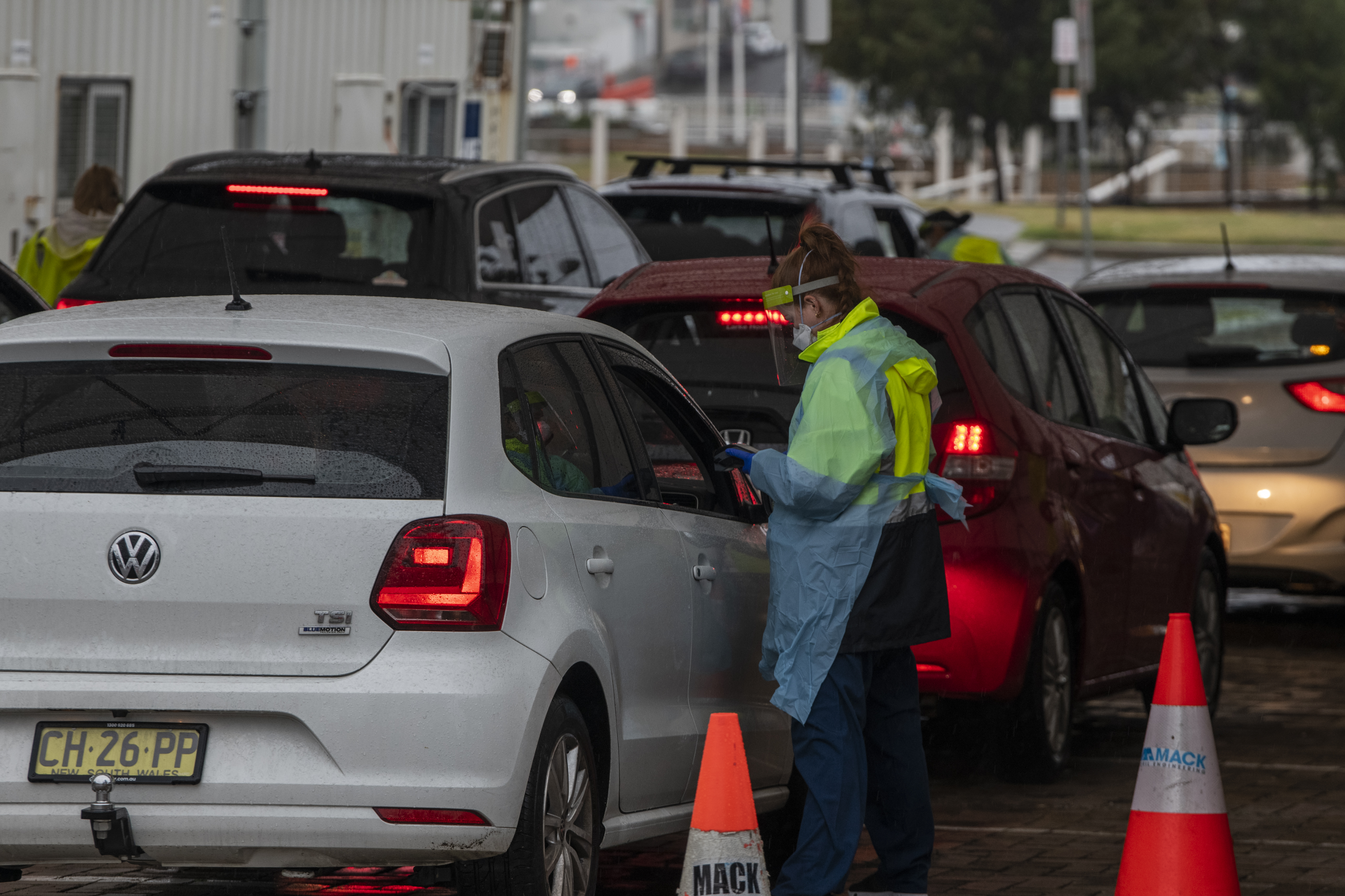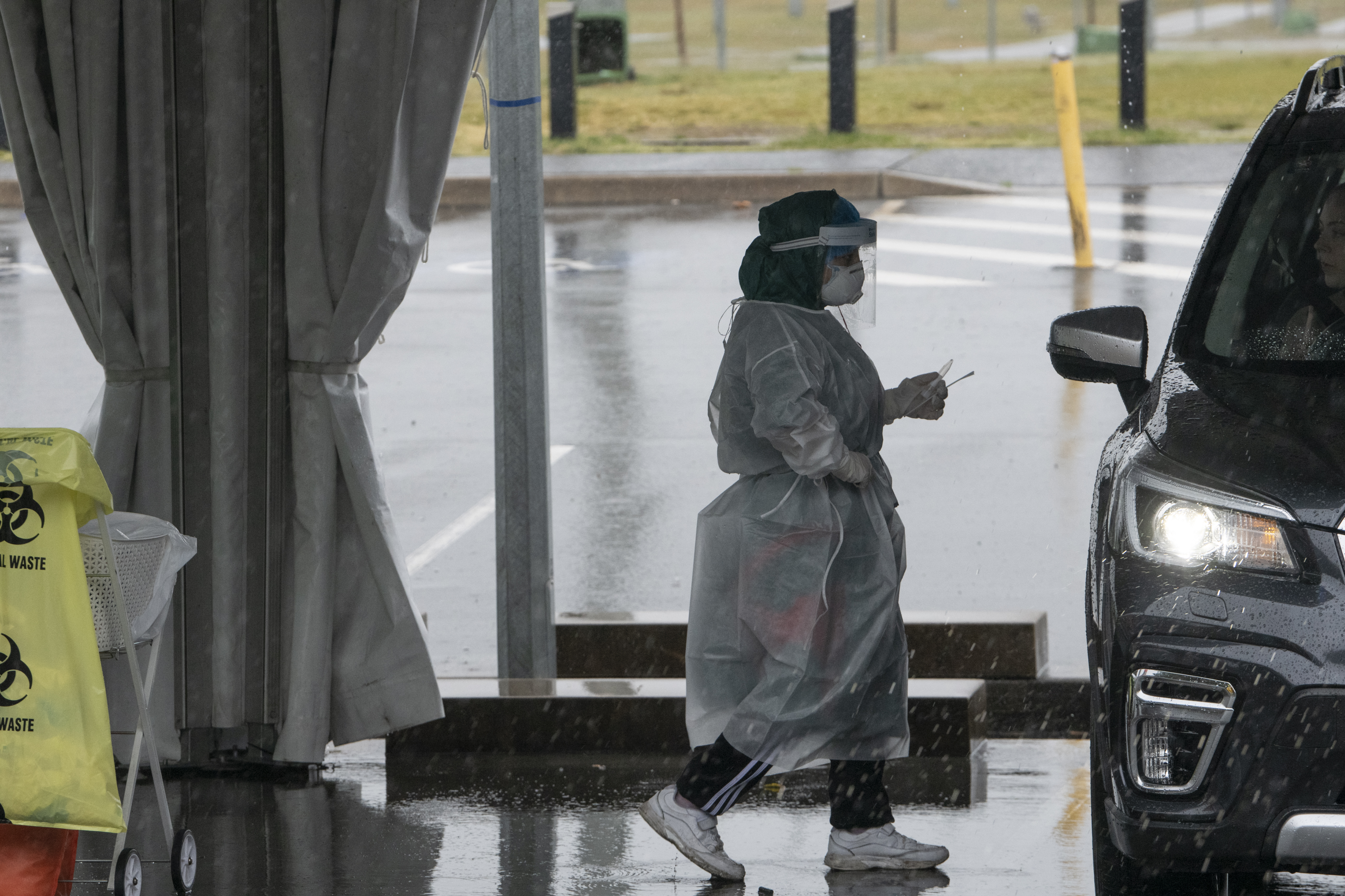In a departure today during the daily NSW COVID-19 update, Premier Gladys Berejiklian invited lung specialist Dr Lucy Morgan to talk about what it is like to fall ill with COVID-19 and what symptoms to watch out for.
Dr Morgan is a Sydney lung specialist and works as a part of the team looking after patients with COVID-19 in Sydney's west.
We have published the full transcript of her media conference below, or you can watch that specific segment from the press conference at the top of the page.
READ MORE: NSW records 919 new COVID-19 cases, two deaths

I know that some people are still worried about getting vaccinated so I wanted to share some stories with you about what it's like and how it feels to fall ill with COVID-19.
LIVE UPDATES: Almost a third of people in NSW fully vaccinated
And my hope is when you can understand a little bit more about how I feel sick to get sick with COVID-19, we might transfer some of our anxieties about the vaccine to feeling a bit more anxious about the illness and what we can do constructively to reduce our chances of falling ill with this.
The biggest message today is get vaccinated, it's not too late to get vaccinated. Think about getting vaccinated today. The Delta strain of COVID-19 is incredibly infectious and that's one of the problems for all of us.

The tiny particles of the virus get into our bodies with the tiniest of contact. And this is why social distancing and staying at home really helps to contain the virus and contain the infection.
It explains why once the virus has infected one member of the household, it spreads so incredibly quickly within that household.
Getting vaccinated protects you against catching that virus and it also definitely reduces the chances that if you get infected, that you get sick enough to end up in hospital.
READ MORE: 'An odd thing to say': WA Premier hits back at PM's Croods comparison
It also reduces the chances that you will pass on that virus to other people in your household.
So vaccination avoids the risk of serious illness and definitely reduces infectivity.
Symptoms to watch out for
Once you're exposed to virus, most of us have very few symptoms in the early days. Unfortunately, you've already caught the virus and you are already passing that virus on.
The first symptoms of COVID-19 virus are very much like any other cold or flu illness.
They're often very mild, so mild as to not really be noticeable but they'll be the ordinary cold and flu symptoms - a headache, a bit of a sore throat, maybe a bit of a cough.
Some people have muscle aches and some people have fever in those early days.
READ MORE: Queensland pauses arrivals from interstate hotspots
But some people become breathless and dizzy. And these other sorts of simple that need urgent medical assistance.
If you have COVID-19, and you feel breathless, you have trouble breathing or you are feeling dizzy, you need to call an ambulance.
An ambulance is free, your medical care will be free and there'll be people who can care for you even if English is not your first language.
The symptoms of COVID-19 that are affecting many of the patients I've been caring for in the last few weeks include a really severe headache, not just a little bit of a headache but a really severe migraine-like headache that makes you sensitive to light, has a stiff neck and that takes more than just Panadol to relieve it, it's really awful.
Many of my patients have a terrible cough, the sort of cough that leaves you breathless and they can't move or speak or walk without the cough becoming really, really terrible.
Lots of patients have diarrhoea, lots of patients have nausea - they just can't eat or drink anything and people feel so overwhelmingly fatigued, all they can do is lie on the bed.
READ MORE: Majority of crew on Fremantle cargo ship test positive to COVID-19
Some of these patients become increasingly breathless. Initially, just breathless, walking quickly or making the bed but as time goes by, they become breathless walking or even talking.
If anybody is at home with symptoms this severe, they need to call an ambulance.
Don't ring up and make a GP appointment, call an ambulance. Because these are the sorts of symptoms and signs that tell me that the COVID-19 illness is progressing and progressing quickly.

As people become increasingly restless, the oxygen in their blood starts to drop and they need increasing levels of extra support to keep their oxygen levels up.
That might be oxygen via little nasal prongs that go into the nose but as the things progress and as people get sicker, they may need actually a machine to do the breathing for them.
And that's the point at which someone who is in a hospital having care for COVID-19 may require intensive care therapy, the sorts of treatments that Dr Nguyen talked about on Monday, a machine to do the breathing for you, a machine to possibly support your blood pressure and do the work of organs in your body.
READ MORE: US fully approves Pfizer vaccine, now branded Comirnaty
So it's anything that we can do to reduce the severity of the illness and reduce the need into intensive care is very, very important.
And getting vaccinated is clearly something that we can do to reduce this severe illness.
One of the things that I noticed in my most recent days in the hospital was that the heartbreaking stories of patients who were very, very young.
https://twitter.com/NSWHealth/status/1430334358351536130I've been looking after patients in their 20s, in their 30s and in their 40s.
Many of whom have very young children, many of whom have partners who are in hospital in other hospitals, dislocating their families.
Many of these patients have children who have needed to be so that there is someone who can care for them safely.
READ MORE: Woman in her 30s with COVID-19 dies in Sydney home
All of them have extended families who have been impacted in many, many ways by the impact of COVID-19 illness.
Not one person that I was caring for with severe respiratory illness over the last few days was fully vaccinated.
But the good news in all of this is that this does not have to be you.

You could get a vaccine today and reduce your risk of getting severe respiratory illness from COVID-19 and reduce your chances of ending up in hospital.
Two doses of COVID-19 vaccination will be your suit of armour.
It will protect you from getting sick from COVID-19, from needing admission to hospital and from ending up in ICU.
Book your vaccine today and protect your loved ones and protect yourself.
from 9News https://ift.tt/3sLC4Uf
via IFTTT


0 Comments